Art history detectives
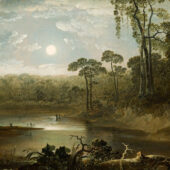 History professor Michele Gillespie usually includes class visits to view art in Winston-Salem. This semester, she expanded the idea to benefit both the students in her Women and Gender in Early America course and the local museums.
History professor Michele Gillespie usually includes class visits to view art in Winston-Salem. This semester, she expanded the idea to benefit both the students in her Women and Gender in Early America course and the local museums.Categories: Arts & Culture, Experiential Learning, Mentorship, Research & Discovery

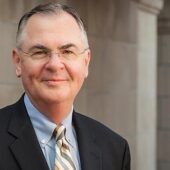 Wake Forest President Nathan Hatch has been inducted into the American Academy of Arts and Sciences. One of the nation’s most prestigious honorary societies, the Academy is also a leading center for independent policy research.
Wake Forest President Nathan Hatch has been inducted into the American Academy of Arts and Sciences. One of the nation’s most prestigious honorary societies, the Academy is also a leading center for independent policy research.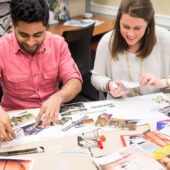 Arts and humanities offer opportunities to learn about life through a variety of lenses. A new interdisciplinary program and a class where theatre students help train counseling students are just two examples of how Wake Forest combines imagination and insight.
Arts and humanities offer opportunities to learn about life through a variety of lenses. A new interdisciplinary program and a class where theatre students help train counseling students are just two examples of how Wake Forest combines imagination and insight. MSNBC television host, political thought leader and Wake Forest University alumna Melissa Harris-Perry (‘94) will return this summer to her alma mater as a chaired professor.
MSNBC television host, political thought leader and Wake Forest University alumna Melissa Harris-Perry (‘94) will return this summer to her alma mater as a chaired professor.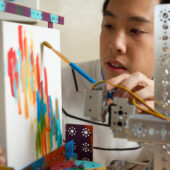 Would you let an artist perform life-saving surgery on you? You might someday, if the artist is a painting robot. Timothy Lee (’16) built a robotic painting arm that could one day lend doctors a hand in practicing complex, robot-assisted surgeries without having to step foot in an operating room.
Would you let an artist perform life-saving surgery on you? You might someday, if the artist is a painting robot. Timothy Lee (’16) built a robotic painting arm that could one day lend doctors a hand in practicing complex, robot-assisted surgeries without having to step foot in an operating room.
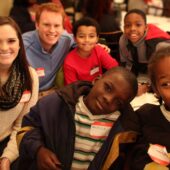 Erin Hellmann ('14) and Logan Healy-Tuke ('14) founded The Ashley Explorers Saturday Academy to strengthen the reading and math skills of elementary students in Winston-Salem.
Erin Hellmann ('14) and Logan Healy-Tuke ('14) founded The Ashley Explorers Saturday Academy to strengthen the reading and math skills of elementary students in Winston-Salem. 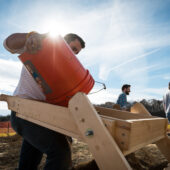 Carrying shovels, screens and other equipment, 12 students trekked across a tobacco field along the Yadkin River to reach an archaeological site where they began finding artifacts more than 500 years old.
Carrying shovels, screens and other equipment, 12 students trekked across a tobacco field along the Yadkin River to reach an archaeological site where they began finding artifacts more than 500 years old.  Biology professor Kathy Kron and the 11 students enrolled in Biology 105: Plants & People met at Reynolda House Museum of American Art to learn firsthand how biology is incorporated in the current exhibition, “Things Wondrous and Humble: American Still Life."
Biology professor Kathy Kron and the 11 students enrolled in Biology 105: Plants & People met at Reynolda House Museum of American Art to learn firsthand how biology is incorporated in the current exhibition, “Things Wondrous and Humble: American Still Life."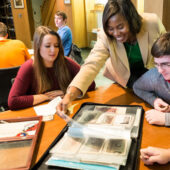 English professor Sharon Raynor’s students sift through acid-free folders looking at letters that soldiers sent home during the Civil War and World War I and II. Pulling out folders. Reading the words. It’s an experience unlike looking at a digitized copy.
English professor Sharon Raynor’s students sift through acid-free folders looking at letters that soldiers sent home during the Civil War and World War I and II. Pulling out folders. Reading the words. It’s an experience unlike looking at a digitized copy. From discovering how text messages can help build empathy to figuring out how character and personality affect ethical behavior on the job, the Character Project has led to remarkable advances in the study of human nature, values, morals and decision-making. The next step? Sharing what scholars have learned about character with the public.
From discovering how text messages can help build empathy to figuring out how character and personality affect ethical behavior on the job, the Character Project has led to remarkable advances in the study of human nature, values, morals and decision-making. The next step? Sharing what scholars have learned about character with the public.